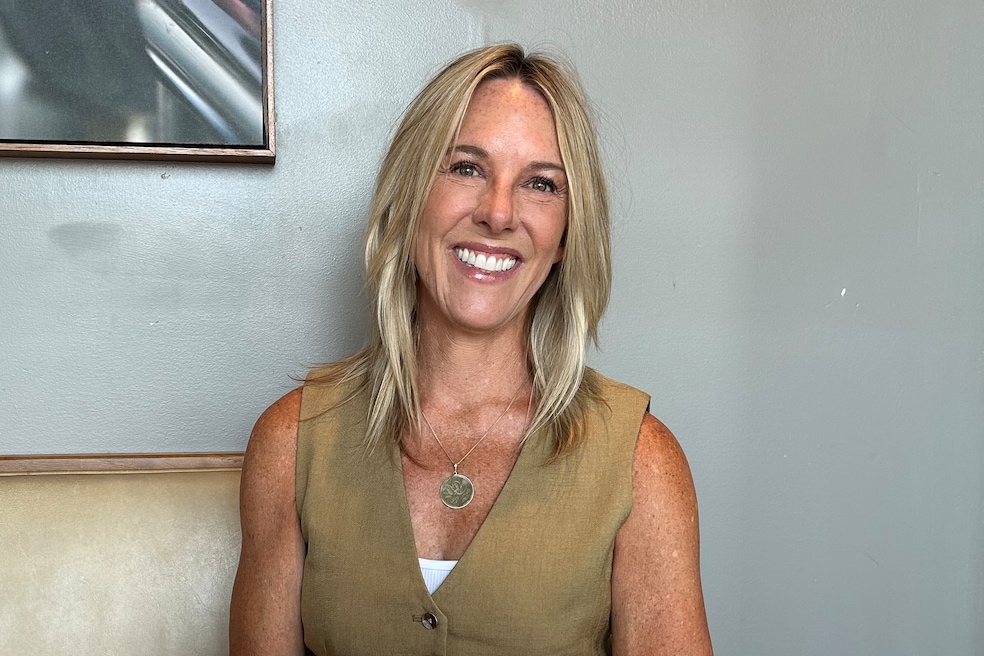Dawn Bauman has a piece of the condominium that collapsed years ago in South Florida's Surfside community.
After learning of the accident, she flew down and visited the site.
"I took a little piece — I probably wasn’t supposed to — but I took a little piece of the condo building that had fallen and put it in my pocket. It sits on my desk and truly inspires me every day to create policy to help keep people safe," Bauman said. "We have an opportunity to keep people safe in buildings that are strong and stable in communities that are wonderful places to live."
After nearly 30 years of leading a variety of nonprofit organizations, Bauman is familiar with challenging causes. She had executive roles at the U.S. Psychiatric Rehabilitation Association and the National Board of Certification for Community Association Managers before returning to the Falls Church, Virginia-based Community Associations Institute, an international nonprofit firm that represents condo association board members with condo research, surveys and policy efforts.
Years after the Champlain Towers South condo collapse in Surfside, states have reevaluated legislation tied to condominium associations, monthly assessment fees and reserves.
Homes.com met with Bauman at a cafe just a few blocks from the waterfront and cobblestone streets of historic Alexandria, Virginia. Bauman kept cool from the sweltering summer heat and humidity outside with a cold-brew coffee infused with nitrogen gas.
This interview has been edited and condensed for clarity.
The collapse of Champlain Towers South raised safety concerns for condominiums built before the 2000s. What would you say to buyers worried about buying or staying in a condominium?
What’s important to remember is that most condominium buildings are safe. We project that there are about 155,000 condo buildings in the U.S. Some of those could be high-rise condominiums in Miami, New York, Chicago and Boston. Some of them could be townhouses and garden-style condominiums as well, maybe four stories or five stories.
Of those buildings, approximately two-thirds are older than 40 years old. That doesn’t mean they are unsafe. It doesn’t mean they are not well-maintained. What it means is we have a large number of buildings that are 40 or older and could likely benefit from an inspection of their structural integrity.
Fannie Mae has a blacklist of condominiums unable to gain financing due to safety and maintenance concerns. How can buyers learn whether a building they are considering is on that list?
If you love that community, and you want to buy in that community, then you have to talk with your real estate agent and mortgage lender to see if that condo building is on the eligible list if you’re looking for a Fannie or Freddie loan. The buyer may not know a building isn’t eligible until they try to go and buy, because there isn't a publicly available list to go to and find out.
And the main reason why condominiums are on the ineligible list is not because the buildings are not safe. It is typically because they have not been able to meet the insurance requirements, or they have not been able to meet the reserve funding requirements. Some of these are arbitrary requirements or it happens to be that the building has an inspection report, and they are doing all of that work, but the work’s not done.
What questions should buyers ask to learn whether a condo association maintains the building?
Are there any fees that I should be expecting that you haven’t told me about? That is a really important piece of the conversation because if there is a building inspection report and work being done, that might be work being done over the next five years, maybe seven years, so what should those owners plan for in the next five to seven years?
Go through the information about the association. What is the budget for the next year? What are the assessments right now, and are they expected to be the same next year, or are they expected to increase? There is often a conversation of, "We don’t want those assessments ever to increase." That’s a terrible way to view expenses related to home maintenance. Those costs are going to continue to increase.
What are the options for owners weighing monthly assessment fees and special assessments?
Maybe working with the developer to rebuild that building and either sell to a developer and rebuild, or redevelopment, where owners have a place to live, and there are additional units that are developed that could be resold. It gets a little complicated. The process takes quite a while.
We are seeing that in some areas, the land is so valuable that the building or the units on the land are not as valuable. Having an evaluation of that might be an option. It’s tricky because you’re working with a group of homeowners.

